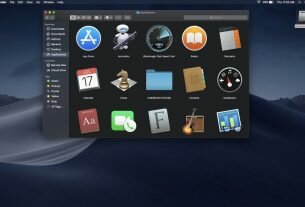Question or issue on macOS:
I’m on: OSX 10.11.6, Homebrew version 0.9.9m OpenSSL 0.9.8zg 14 July 2015
I’m trying to play with with dotnetcore and by following their instructions,
I’ve upgraded/installed the latest version of openssl:
> brew install openssl
==> Downloading https://homebrew.bintray.com/bottles/openssl-1.0.2h_1.el_capitan.bottle.tar.gz
Already downloaded: /Users/administrator/Library/Caches/Homebrew/openssl-1.0.2h_1.el_capitan.bottle.tar.gz
==> Pouring openssl-1.0.2h_1.el_capitan.bottle.tar.gz
==> Caveats
A CA file has been bootstrapped using certificates from the system
keychain. To add additional certificates, place .pem files in
/usr/local/etc/openssl/certs
and run
/usr/local/opt/openssl/bin/c_rehash
This formula is keg-only, which means it was not symlinked into /usr/local.
Apple has deprecated use of OpenSSL in favor of its own TLS and crypto libraries
Generally there are no consequences of this for you. If you build your
own software and it requires this formula, you'll need to add to your
build variables:
LDFLAGS: -L/usr/local/opt/openssl/lib
CPPFLAGS: -I/usr/local/opt/openssl/include
But when I try to link openssl I continue to run into this linking error:
> brew link --force openssl Warning: Refusing to link: openssl Linking keg-only OpenSSL means you may end up linking against the insecure, deprecated system version while using the headers from the Homebrew version. Instead, pass the full include/library paths to your compiler e.g.: -I/usr/local/opt/openssl/include -L/usr/local/opt/openssl/lib
The option to include compiler flags doesn’t make sense to me, since I’m not compiling these libraries that I’m dependent on.
EDIT dotnetcore has updated their instructions:
brew update brew install openssl ln -s /usr/local/opt/openssl/lib/libcrypto.1.0.0.dylib /usr/local/lib/ ln -s /usr/local/opt/openssl/lib/libssl.1.0.0.dylib /usr/local/lib/
How to solve this problem?
Solution no. 1:
As the update to the other answer suggests, the workaround of installing the old openssl101 brew will no longer work. For a right-now workaround, see this comment on dotnet/cli#3964.
The most relevant part of the issue copied here:
I looked into the other option that was suggested for setting the rpath on the library. I think the following is a better solution that will only effect this specific library.
sudo install_name_tool -add_rpath /usr/local/opt/openssl/lib /usr/local/share/dotnet/shared/Microsoft.NETCore.App/1.0.0/System.Security.Cryptography.Native.dylib
and/or if you have NETCore 1.0.1 installed perform the same command for 1.0.1 as well:
sudo install_name_tool -add_rpath /usr/local/opt/openssl/lib /usr/local/share/dotnet/shared/Microsoft.NETCore.App/1.0.1/System.Security.Cryptography.Native.dylib
In effect, rather than telling the operating system to always use the homebrew version of SSL and potentially causing something to break, we’re telling dotnet how to find the correct library.
Also importantly, it looks like Microsoft are aware of the issue and and have both a) a somewhat immediate plan to mitigate as well as b) a long-term solution (probaby bundling OpenSSL with dotnet).
Another thing to note: /usr/local/opt/openssl/lib is where the brew is linked by default:
13:22 $ ls -l /usr/local/opt/openssl lrwxr-xr-x 1 ben admin 26 May 15 14:22 /usr/local/opt/openssl -> ../Cellar/openssl/1.0.2h_1
If for whatever reason you install the brew and link it in a different location, then that path is the one you should use as an rpath.
Once you’ve update the rpath of the System.Security.Cryptography.Native.dylib libray, you’ll need to restart your interactive session (i.e., close your console and start another one).
Solution no. 2:
This is what worked for me:
brew update brew install openssl ln -s /usr/local/opt/openssl/lib/libcrypto.1.0.0.dylib /usr/local/lib/ ln -s /usr/local/opt/openssl/lib/libssl.1.0.0.dylib /usr/local/lib/ ln -s /usr/local/Cellar/openssl/1.0.2j/bin/openssl /usr/local/bin/openssl
Thanks to @dorlandode on this thread https://github.com/Homebrew/brew/pull/597
NB: I only used this as a temporary fix until I could spend time correctly installing Openssl again from scratch. As I remember I spent best part of a day debugging and having issues before I realised the best way was to manually install the certs I needed one by one. Please read the link in @bouke’s comment before attempting this.
Solution no. 3:
None of these solutions worked for me on OS X El Capitan 10.11.6. Probably because OS X has a native version of openssl that it believes is superior, and as such, does not like tampering.
So, I took the high road and started fresh…
Manually install and symlink
cd /usr/local/src
-
If you’re getting “No such file or directory”, make it:
cd /usr/local && mkdir src && cd src
Download openssl:
curl --remote-name https://www.openssl.org/source/openssl-1.0.2h.tar.gz
Extract and cd in:
tar -xzvf openssl-1.0.2h.tar.gz cd openssl-1.0.2h
Compile and install:
./configure darwin64-x86_64-cc --prefix=/usr/local/openssl-1.0.2h shared make depend make make install
Now symlink OS X’s openssl to your new and updated openssl:
ln -s /usr/local/openssl-1.0.2h/bin/openssl /usr/local/bin/openssl
Close terminal, open a new session, and verify OS X is using your new openssl:
openssl version -a
Solution no. 4:
Just execute brew info openssland read the information where it says:
If you need to have this software first in your PATH run: echo ‘export PATH=”/usr/local/opt/openssl/bin:$PATH”‘ >> ~/.bash_profile
Solution no. 5:
If migrating your mac breaks homebrew:
I migrated my mac, and it unlinked all my homebrew installs – including OpenSSL. This broke gem install, which is how I first noticed the problem and started trying to repair this.
After a million solutions (when migrating to OSX Sierra – 10.12.5), the solution ended up being comically simple:
brew reinstall ruby brew reinstall openssl
Solution no. 6:
After trying everything I could find and nothing worked, I just tried this:
touch ~/.bash_profile; open ~/.bash_profile
Inside the file added this line.
export PATH="$PATH:/usr/local/Cellar/openssl/1.0.2j/bin/openssl"
now it works 🙂
Jorns-iMac:~ jorn$ openssl version -a OpenSSL 1.0.2j 26 Sep 2016 built on: reproducible build, date unspecified //blah blah OPENSSLDIR: "/usr/local/etc/openssl" Jorns-iMac:~ jorn$ which openssl /usr/local/opt/openssl/bin/openssl
Solution no. 7:
I have a similar case. I need to install openssl via brew and then use pip to install mitmproxy. I get the same complaint from brew link --force. Following is the solution I reached: (without force link by brew)
LDFLAGS=-L/usr/local/opt/openssl/lib CPPFLAGS=-I/usr/local/opt/openssl/include PKG_CONFIG_PATH=/usr/local/opt/openssl/lib/pkgconfig pip install mitmproxy
This does not address the question straightforwardly. I leave the one-liner in case anyone uses pip and requires the openssl lib.
Note: the /usr/local/opt/openssl/lib paths are obtained by brew info openssl
Solution no. 8:
This worked for me:
brew install openssl cd /usr/local/include ln -s ../opt/openssl/include/openssl .
Solution no. 9:
The solution above from edwardthesecond worked for me too on Sierra
brew install openssl cd /usr/local/include ln -s ../opt/openssl/include/openssl ./configure && make
Other steps I did before were:
-
installing openssl via brew
brew install openssl -
adding openssl to the path as suggested by homebrew
brew info openssl echo 'export PATH="/usr/local/opt/openssl/bin:$PATH"' >> ~/.bash_profile
Solution no. 10:
By default, homebrew gave me OpenSSL version 1.1 and I was looking for version 1.0 instead. This worked for me.
To install version 1.0:
brew install https://github.com/tebelorg/Tump/releases/download/v1.0.0/openssl.rb
Then I tried to symlink my way through it but it gave me the following error:
ln -s /usr/local/Cellar/openssl/1.0.2t/include/openssl /usr/bin/openssl ln: /usr/bin/openssl: Operation not permitted
Finally linked openssl to point to 1.0 version using brew switch command:
brew switch openssl 1.0.2t Cleaning /usr/local/Cellar/openssl/1.0.2t Opt link created for /usr/local/Cellar/openssl/1.0.2t



